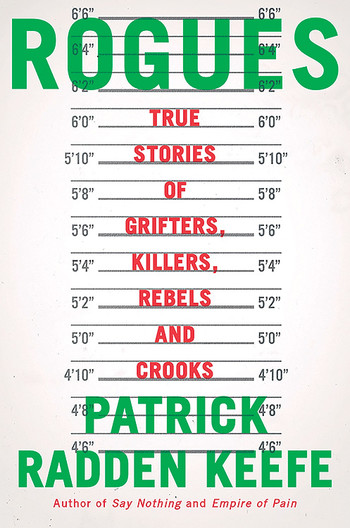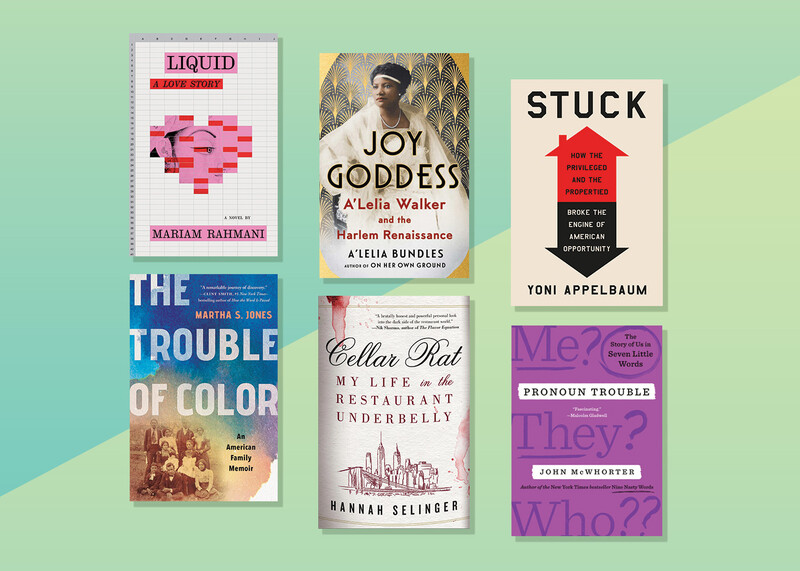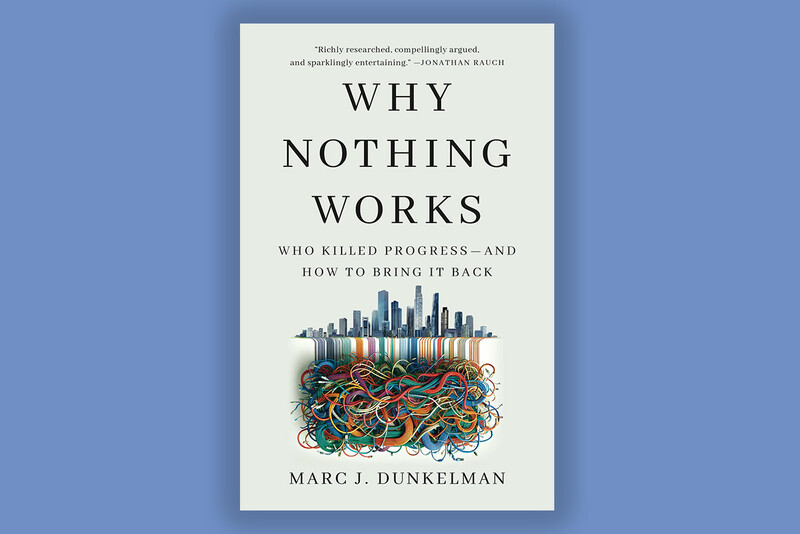Among the “abiding preoccupations” to which Patrick Radden Keefe ’99CC confesses in the preface to Rogues are “crime and corruption, secrets and lies” and “the permeable membrane separating licit and illicit worlds.” These preoccupations are front and center in this collection of twelve magazine articles written over twelve years (2007–2019), making the experience of reading this book both exhilarating and unnerving. If the latter adjective sounds critical, it emphatically is not.
In most of the morally deranged subcultures that Keefe probes in these pieces, avarice rules. Money not only makes the world go round, but on occasion the sums are so vast they nearly cause it to spin off its axis. Readers of Rogues are hereby encouraged to fasten their seatbelts. In a 2014 piece, the unlawful escapades of the Mexican drug lord familiarly known as El Chapo and the quantities of money, product, and people his operation moves around on a daily basis are eye-popping. Nearly as dumbfounding is the way a jovial Syrian arms dealer living large in a mansion on Spain’s southern coast shrewdly manipulates international law (largely unenforceable anyway) while never actually breaking the national laws of any of the multiple countries in which he trades black-market weapons. Closer to home, there’s Mark Burnett, a self-identified undocumented immigrant turned nanny turned Hollywood producer whose single-minded pursuit of wealth helped create reality television. (Urged by a self-help guru to jot down his number-one life goal, Burnett writes “more money.”) Most consequential among his shows is The Apprentice, which Keefe strongly suggests laid the groundwork for Donald Trump’s 2016 presidential bid.
But of course even when money is the main thing, it is rarely the only thing. The lust for it that surfaces again and again in these stories is often a surrogate for other, sometimes inchoate yearnings, such as for power or love or saving face. Why else would a multibillionaire like David Koch (one of the Koch brothers and the subject of this collection’s earliest story) care so passionately about the likelihood that he was duped into buying forgeries of supposedly rare vintage wines?
Dig deeper — and Keefe never fails to — and we find that something far more complex than simple greed is at play. Fratricide comes up at least three times, though in one instance it might be called demi- fratricide, since the victim is a brother-in-law; his murder is ordered by a chillingly amoral mob boss in the Netherlands, and the brother-in-law is his business partner and childhood best friend. When the mobster goes on trial for this and four other murders, Keefe asks his sister, who’s aided the authorities in his capture but claims to still love him, what she’ll do if he’s acquitted. “I’ll have to kill him,” she says bluntly, before adding, “I should have done it years ago.”
All twelve articles in this volume originally appeared in the New Yorker, for which Keefe has been a contributor since 2006 and where some readers may have enjoyed them before. But like many collections of previously published works, this one gains power from the curation, as themes and patterns in otherwise diverse pieces echo and reinforce one another. A big part of Keefe’s appeal lies in the way he doggedly follows a story through every nuance, every twist and turn and unexpected revelation, to end up in a place where readers have never been before. This is magazine writing at its finest: a thrilling alchemy of scrupulous and seemingly inexhaustible reporting skills that no doubt get a considerable boost from Keefe’s training as an attorney combined with his knack for old-fashioned page-turner-style storytelling.
In a book-jacket blurb, MSNBC’s Rachel Maddow has dubbed Keefe “a national treasure.” Even when one factors in the usual hyperbole of such endorsements, it’s hard to dispute her claim. Devour this book and then send up a prayer to the magazine gods that — in a media landscape increasingly governed by algorithms, SEO terms, “influencers” of questionable expertise, and the near-total absence of fact-checking — superb long-form journalism like Keefe’s can continue to flourish.




